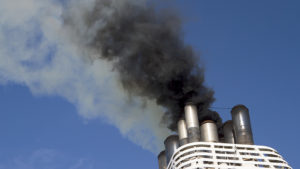The International Maritime Organization (IMO) has designated the North Sea and the Baltic Sea as NOx Emission Control Area (NECA) starting from January 1, 2021 onwards.
Reached during IMO’s 70th Marine Environment Protection Committee, the NECA regulation, which applies to all vessels built after 2021, requires to reduce NOx emissions by 80% compared to the present emission level.
In practice this means new-builds have to be equipped with catalysts or use liquefied natural gas (LNG) fuels in order to comply with the regulation.
According to recent estimates by European Monitoring and Evaluation Programme (EMEP), consisting of deposition modelling based on available emission scenarios (Jonson et al 2015), the annual reduction in total Nitrogen deposition to the Baltic Sea area will be 22,000 tons as a combined effect of the Baltic and North Seas NECAs and compared to a non-NECA scenario.
However, a lengthy period of fleet renewal is needed before the regulation will show full effect, according to HELCOM (Baltic Marine Environment Protection Commission – Helsinki Commission).
Out of this total anticipated reduction in Nitrogen deposition, 7,000 tons is estimated to be reduction from direct deposition to the Baltic Sea surface and the remaining 15,000 tons is estimated to be reduced from deposition to the landmass draining to Baltic Sea, also called its catchment area.
